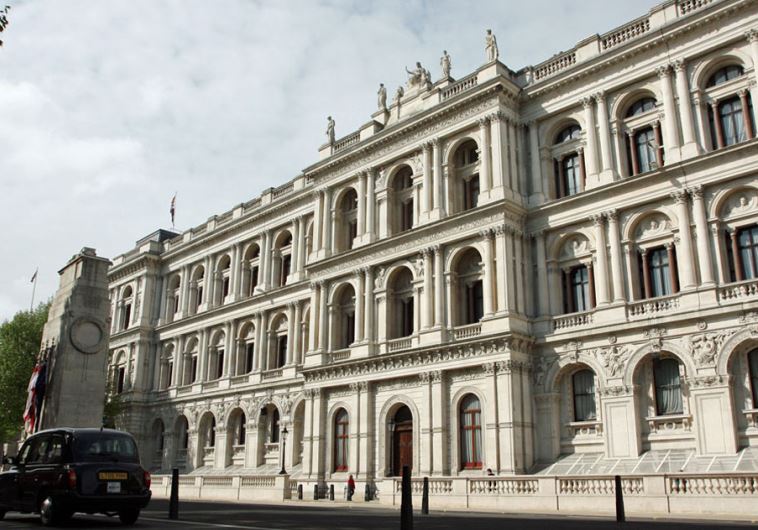Report: Britain delayed action on Iraq chemical weapons partly due to trade interest
Guardian report surveys recently released Foreign Office documents written before the widespread killing of Iranians with chemical weapons.
 The Foreign & Commonwealth Office's main building in Whitehall, London(photo credit: Wikimedia Commons)Updated:
The Foreign & Commonwealth Office's main building in Whitehall, London(photo credit: Wikimedia Commons)Updated: